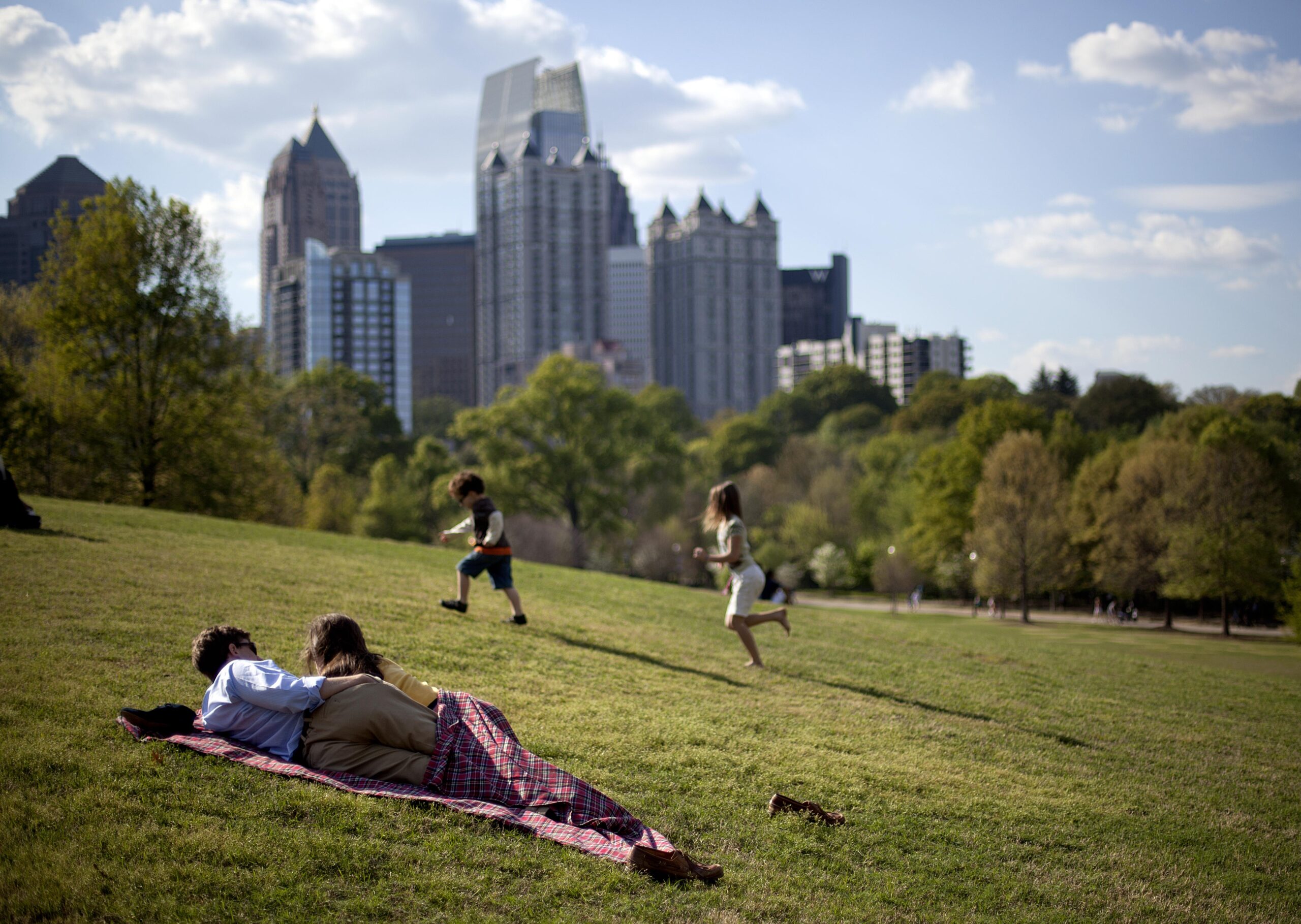Atlanta feels green. It’s got forests, parks and little pockets of open space. There are creeks here, and giant trees. Now, Atlanta officials are looking at how they can protect all that nature, even as the city grows.
Planning Commissioner Tim Keane said restoring and possibly even expanding natural places in Atlanta is a priority to him. “Foundational,” he said, as important as considering transportation, housing and zoning in the city.
The planning department kicked off a year-long project to study urban ecology in Atlanta at a meeting Monday evening. About 50 people showed up, to share their ideas about nature and where they get access to it in the city.
Verdree Lockhart Sr., a resident of Collier Heights said he’s most interested in teaching people about nature.
“As citizens I think we have the responsibility to maintain it,” he said.
Other cities have undertaken similar projects, looking at building parks along rivers, for instance, or updating their tree ordinances. But Atlanta’s plan, to look cohesively at the environments of the city — at the plants, wildlife and human connections — is more ambitious, said Keith Bowers, CEO of Biohabitats, a consulting firm that Atlanta hired for the work.
“The all-encompassing scale of looking at ecology from many different lenses is different from what we see in most cities,” he said.
One priority will be making sure people around Atlanta have equal access to parks, city planners said. They’ll also look at the animals that depend on Atlanta’s natural areas, and the plants and the streams.
Though Atlanta has been booming, it’s not too late to do this, said Michael Halicki, executive director of the non-profit Park Pride.
“I think honestly the thing that differentiates Atlanta from so many other areas is this great bountiful natural urban ecology that we have,” he said. “I think there is the possibility that we grow as a city, and we increase quality of life because we increase access to nature.”
Concrete proposals will come out of this project, Keane said a revision to Atlanta’s tree ordinance will probably come in the next few months. But he said he also hopes to change how people think about the city.
“I jokingly say that I’m hopeful that someday out of this — but maybe it’ll take a little longer — there won’t be the idea of ITP and OTP, there will be this recognition that I live in a certain natural place in Atlanta.”








